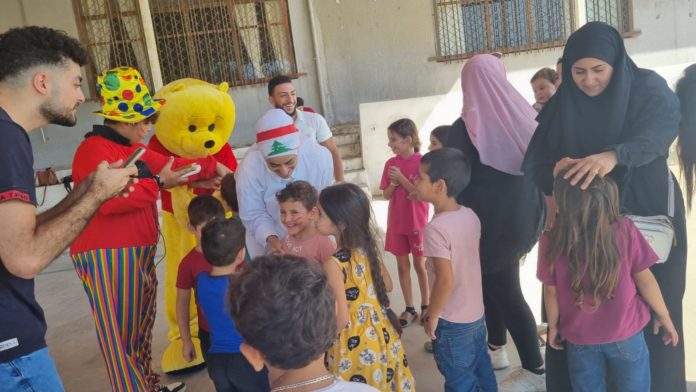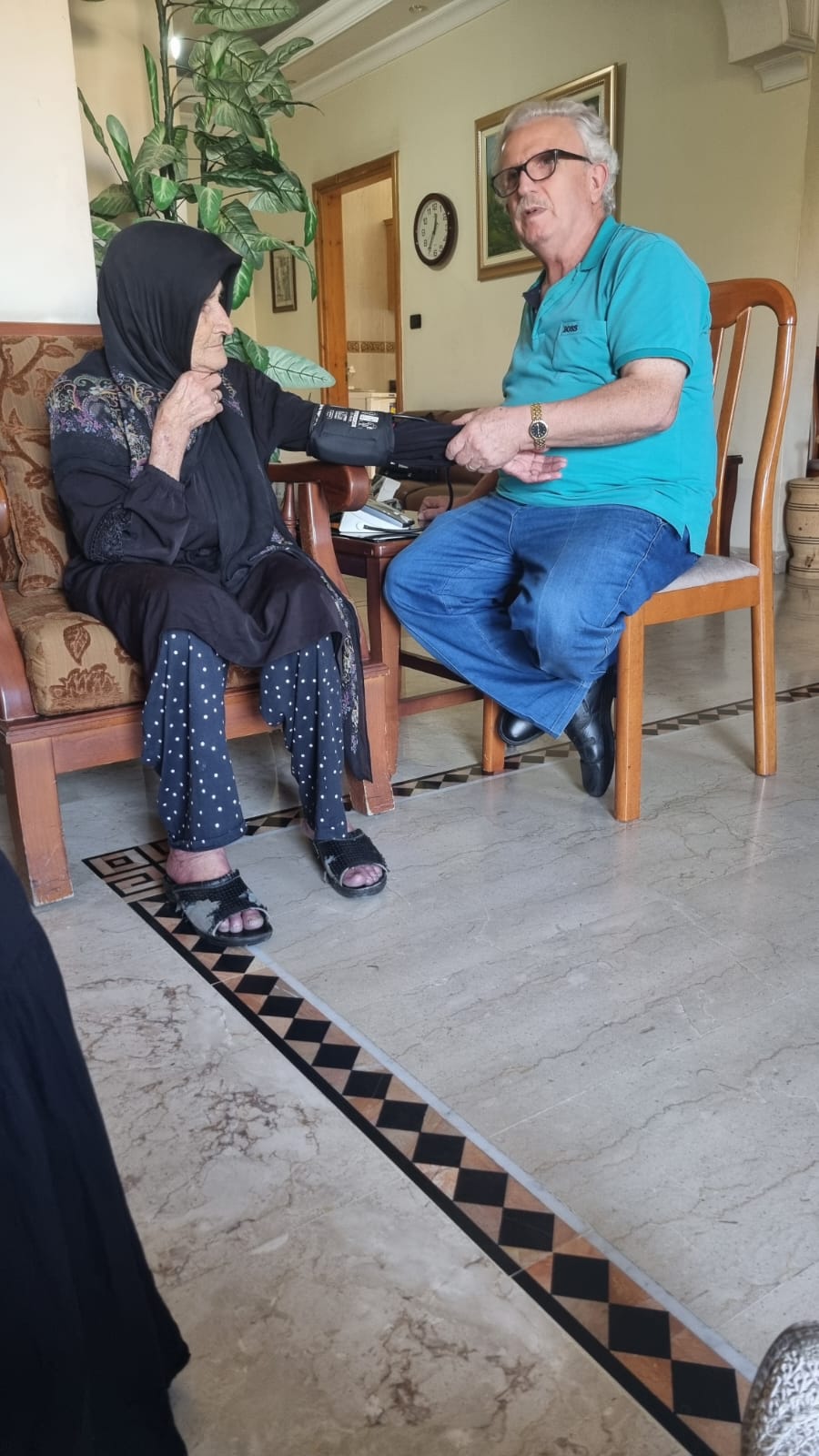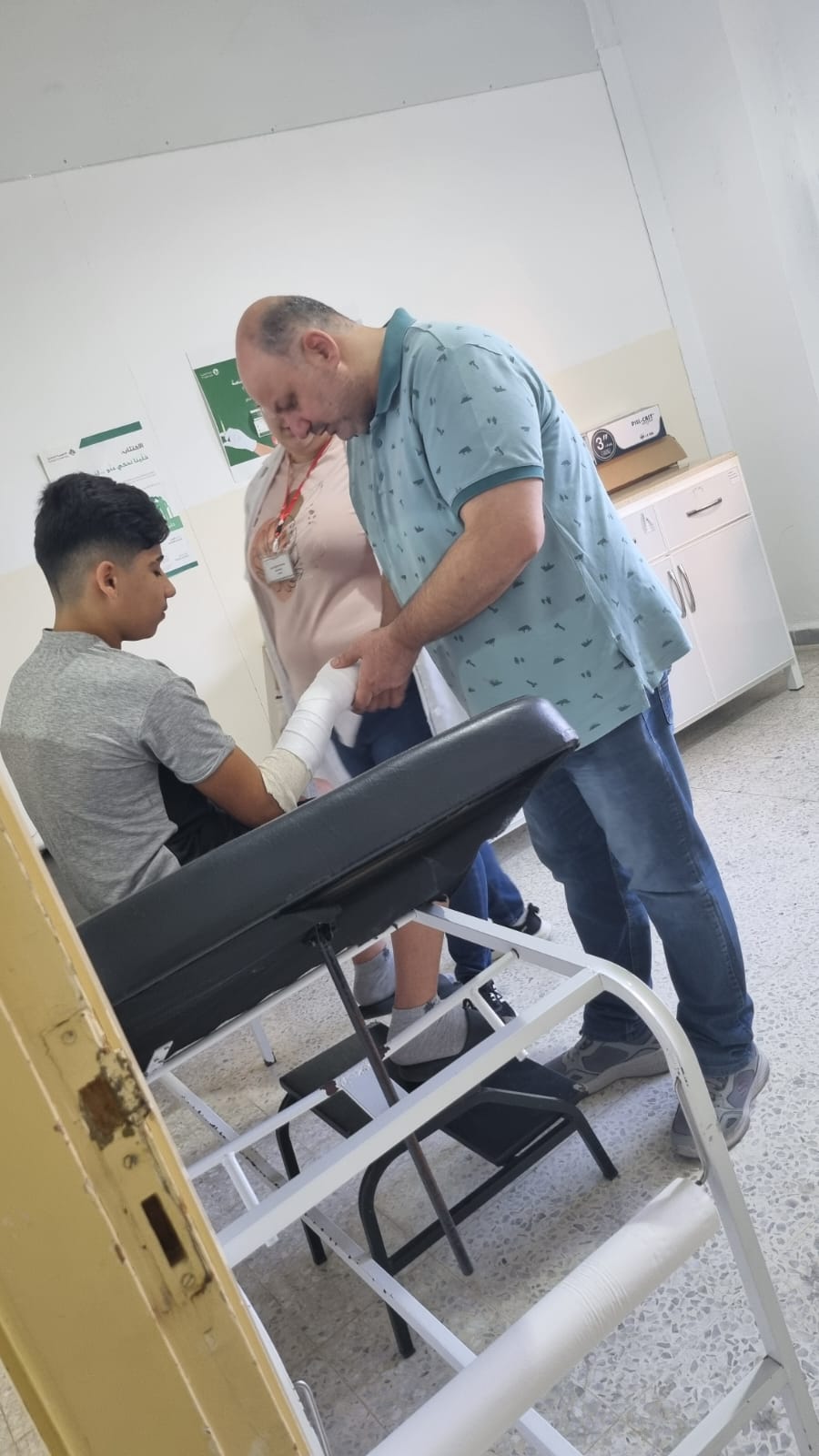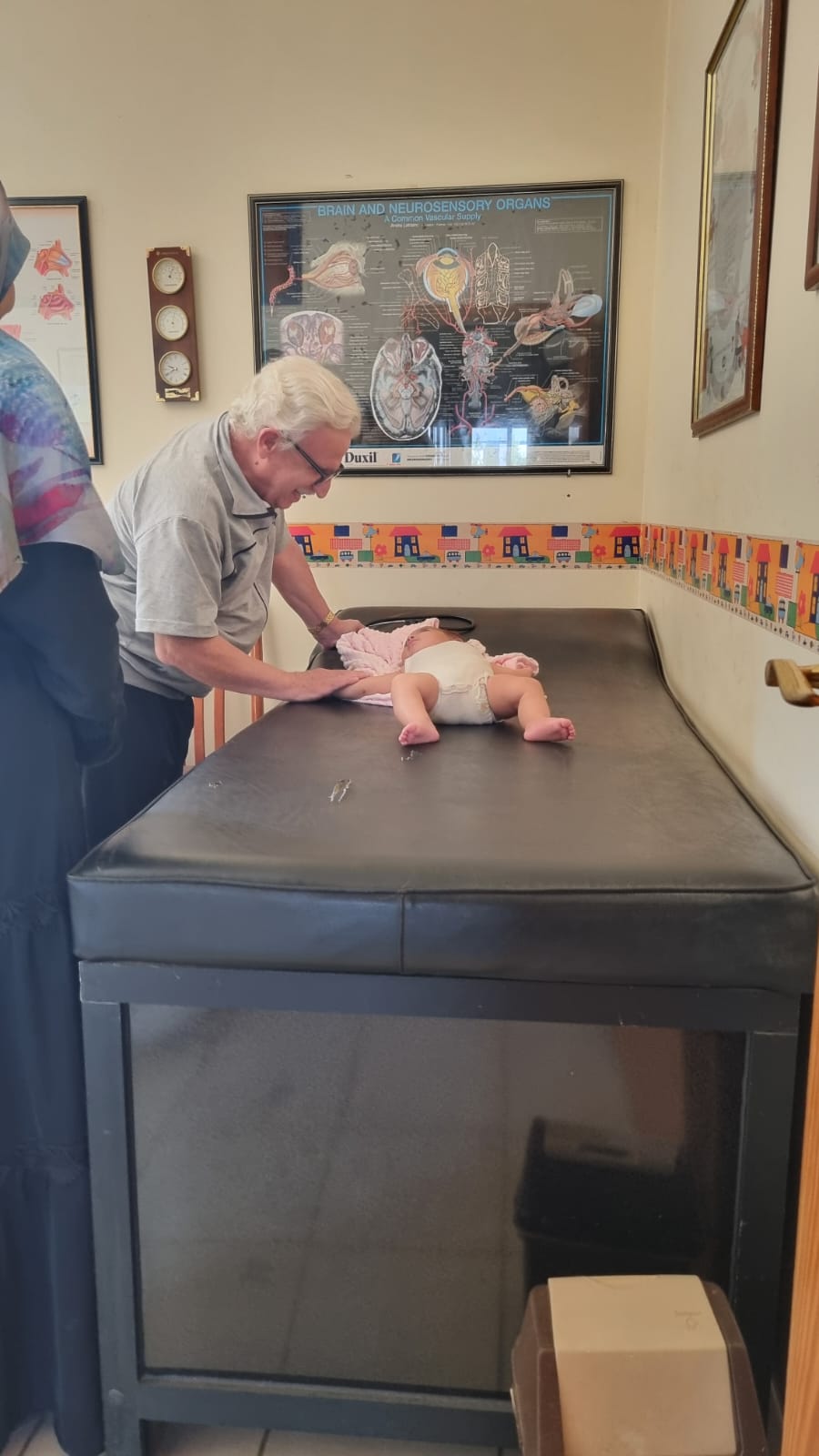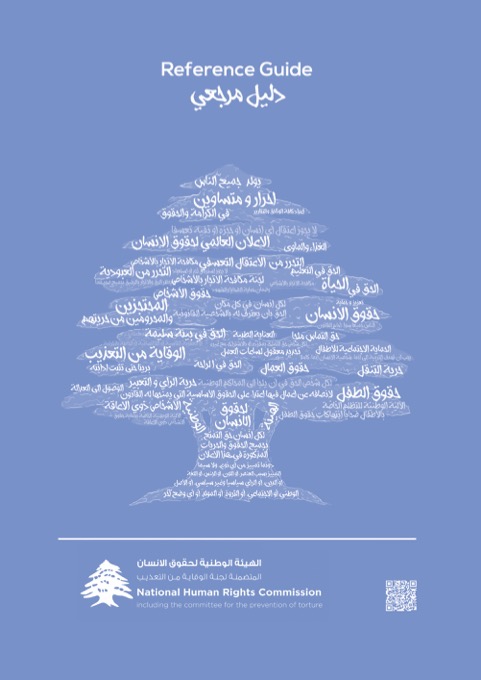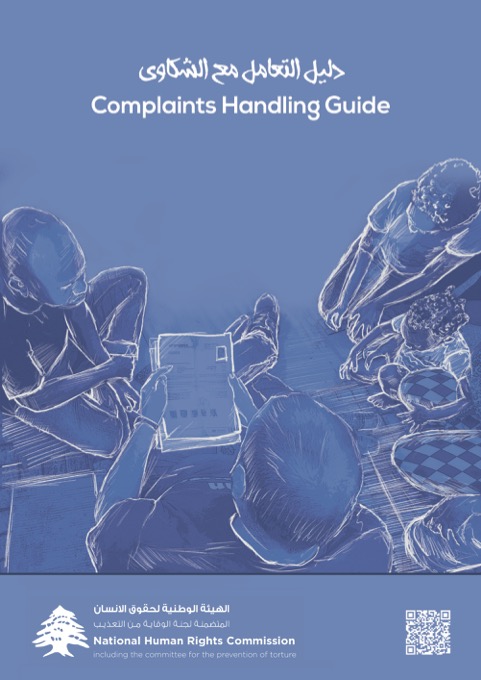هذه المقالة متاحة أيضًا بـ: العربية (Arabic)
In the context of its mission to document complaints and violations affecting displaced persons and report them to the relevant authorities, as well as coordinating between various government bodies working to address the humanitarian consequences of the ongoing Israeli aggression on Lebanon, The National Human Rights Commission of Lebanon (NHRC), which includes the Committee for the Prevention of Torture (CPT), alongside several volunteers, conducted visits to shelters for displaced persons in various areas of Akkar Governorate.
Volunteer lawyer Fidaa Abdel Fattah prepared a comprehensive report on shelters in Akkar starting on September 25, 2024. The report covers the findings from field visits conducted by the National Human Rights Commission to the shelters accommodating those displaced due to the Israeli aggression on Lebanon.
During the ongoing visits, the Commission observed that some school officials failed to take responsibility for the displaced persons, as they opened the school and then abandoned it. This violation was recorded at the Al-Ayoun Public School. Additionally, some school principals have been imposing restrictions on the displaced by withholding or improperly distributing aid, failing to meet the needs of the displaced, and not forming volunteer teams to assist with logistical work. They also pressured volunteers to leave the centers, creating disorder. These issues were observed at Halba Intermediate Public School.
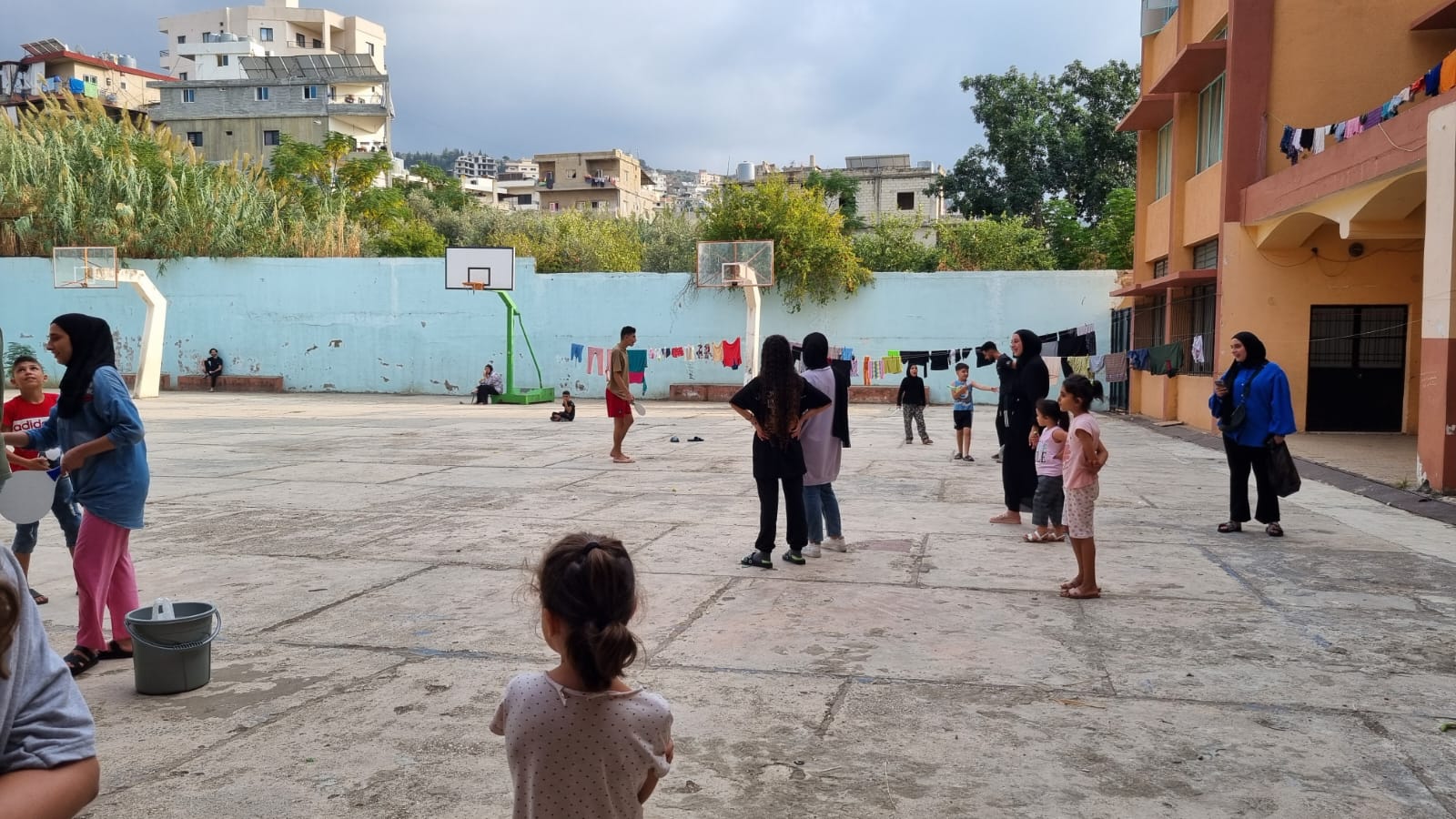
Background:
Akkar geographically stretches from the Al-Abdeh area to Wadi Khaled and the mountains of Fnaydeq, Akkar Al-Atiqah, Akrum, and the Akkar Plain, which includes many villages. The region contains over 210 villages, the largest of which is Bebnine, with around 100,000 inhabitants. The Israeli aggression across Lebanese territories has made it challenging to precisely determine the scale of displacement, as the numbers fluctuate daily and new centers open every day. Many displaced persons are staying in homes, but there are no accurate statistics due to the absence of state institutions.
Most of the efforts have been individual initiatives, with some municipalities actively working due to the presence of engaged mayors, while others are absent. The same applies to civil society, with some active associations and others existing in name only.
Key Shelters Visited:
The tour of the shelters selected for displaced persons began on September 25 with a visit to Halba, which includes two official shelters:
- Halba Technical Institute: This shelter, one of the first to be established in Akkar, hosts 160 displaced persons and is equipped with a kitchen run by the hospitality section, which provides meals for the displaced. The institute’s administration, teaching staff, and the National Education Scouts supervise the shelter. The services offered are well-organized, with food, drinking water, sleeping supplies, and medical consultations provided.
- Halba Intermediate Public School: This shelter houses 150 displaced persons but lacks organization and necessary equipment, including mattresses, which were not initially distributed to everyone. The school principal is responsible for managing the center, assisted by local youth, who later decided to leave due to the principal’s unclear decisions, such as withholding food supplies and cutting off water. The youth filed complaints with local officials, including the governor. No teaching staff were present during the visit, and the shelter was in disarray, with residents complaining about the lack of food, cleaning supplies, blankets, and other essential items.
On September 27, 2024, the tour continued to other centers, including:
- Miniara Boys’ Public School: The mayor manages this center, which hosts 20 displaced persons. The building’s second floor has been fully equipped with essential supplies. Three families occupy only three rooms, with no more than five individuals per family. The mayor explained that most displaced persons had been moved to homes in the village, where 350 displaced persons currently reside.
- Al-Jdeideh Public School (Al-Joumeh): Opened on September 27 to accommodate three families, the municipality oversaw the organization and provision of their essential needs through resident donations. The center lacked a designated kitchen, but water for drinking and general use was available, and each family was given a room.
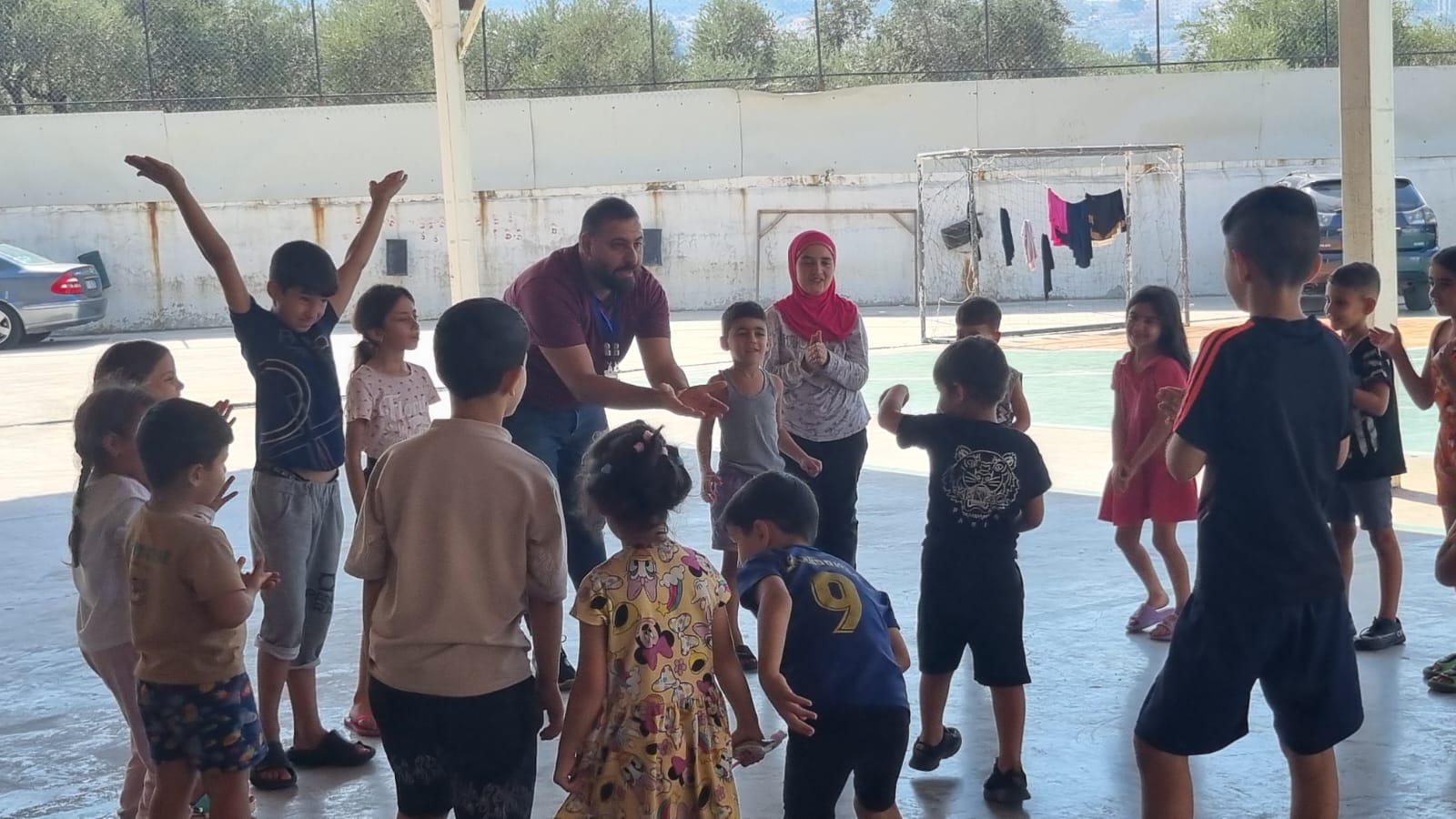
- Rahbe Boys’ Public School: This center, supervised by the National Education Scouts, is hosting 54 displaced persons. All necessary food and hygiene items have been provided. Due to the cold climate, the bathrooms have been equipped with water heaters, and the displaced requested personal items such as clothes and medicine.
- Tikrit Public School: This school, which was visited on September 28, 2024, was hosting 58 displaced persons. It was found to be equipped with the basics, and the school principal and local residents are making efforts to provide mattresses, clothing, food, and bathroom facilities.
- Tikrit Vocational Institute: Opened on September 28, the institute’s kitchen was made available to prepare meals for the institute and the public school. Both schools have now reached total capacity. Special provisions have been made for persons with disabilities, with one displaced person who had a leg amputation being provided a ground-floor room.
- Ayat Public School: During a visit on October 3, 2024, 30 displaced persons who had been staying in a nearby village home were found. The homeowner requested they vacate after four days, so the school’s principal, Dr. Abdo Zain, opened the school for them. The school lacks any rehabilitative services outlined in the emergency shelter preparation plan, and the displaced complained about the lack of assistance.
- Bzebina Nursery School: This center houses 14 families (60 individuals). It is fully equipped and managed by the Bzebina Municipality, although there is a shortage of children’s supplies like diapers and milk. The cold weather in the elevated area raises concerns about the need for heating.
- Bzebina Secondary School: This center, which hosts approximately 120 displaced persons, is supervised by the school’s principal, Ms. Maha Moussa.
- Al-Ayoun Public School: On the same date, we visited this center, which had 40 displaced persons (12 families) who had arrived four days earlier. Local youth gave them essential items like mattresses, blankets, and food supplies.
- Halba Secondary School: The principal agreed to open this school due to the high demand in the area. It now houses 100 displaced persons and is well-organized compared to other schools. The administration, the teaching staff, and volunteers equipped the center with the necessary supplies, ensuring the displaced have dignified living conditions. They provided water, equipped the bathrooms with water heaters, distributed mattresses, blankets, pillows, food rations, and hygiene products, and supplied the kitchen with necessary tools and gas. Efforts are ongoing to organize educational programs for children in collaboration with Dar Qonboz Publishing.
During our stay in Akkar, we helped organize several centers and guided them on managing volunteer teams. We also facilitated the accommodation of new arrivals due to the lack of organization and direction.
Observations
As of October 10, 2024, the main issue noted is the lack of coordination among the various organizations working on displacement. The governorate’s role has been minimal, limited to sending some mattresses to specific centers and requesting that municipalities and school principals send data on displaced persons without coordinating with active organizations on the ground. This has led to significant chaos, wasted resources, and an oversupply in some centers compared to severe shortages in others.
